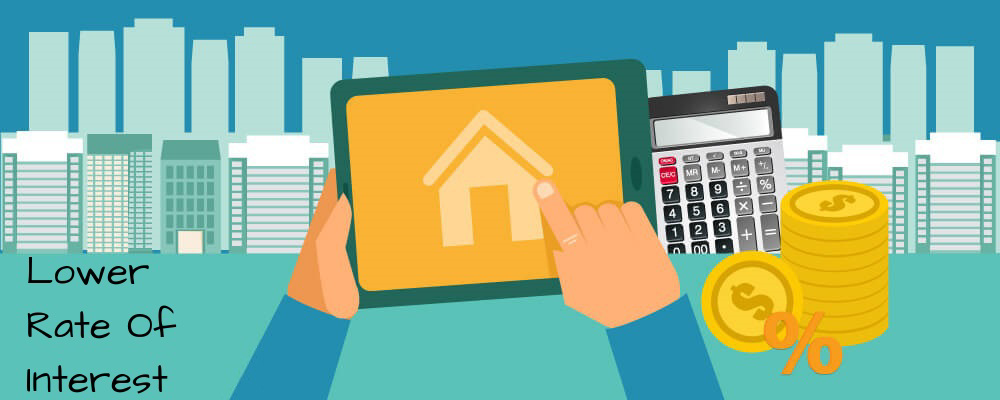It’s a common misconception that credit scores cannot be changed or increased. Every financial decision you make and step you take that’s on record, and related in any way to credit, is recorded by Credit Information Companies (CICs) like CIBIL, Equifax, Experian, etc. and this is what determines your score.
A lower score is an indication of irresponsible behaviour with credit. For example – not paying back loans on time, delaying credit card dues by only paying the minimum monthly amount, over-borrowing, over-utilizing credit despite a large income, having an unfavourable credit utilization ratio, etc. All these things can damage your credit score and will be mentioned in your credit report. Negative remarks and lower scores will mean that you won’t be able to get loans approved in the future.
A higher score, on the other hand, is an indication of responsible credit behaviour. For example – meeting all your EMI payments on time, clearing off credit card dues in full before they compound, debt consolidation, low credit utilization ratio, etc. All these favourable practices work towards building your credit score and sustained practice of this type of financial behaviour could even send your score well above 750 or even 800.

How to increase your CIBIL score fast?
Well, the honest answer to this is that there’s no real way to fix your CIBIL score overnight. It will take at least a few months to get the ball rolling in that regard. Three months is the soonest you could expect to see any positive change in your credit score, without making huge lump sum payments to clear off pending loans. In 6 months, you could see a gradual incline in your report, and in a year, you could even change your overall score by a huge margin. That is, of course, if you heed the following suggestions and make the right decisions with your money:
- Use your credit card: This may have been what damaged your score in the first place, but using your credit card in the right way is one of the easiest ways to increase your credit score. Using your credit card right means setting a tiny limit – say 10% of your monthly income – and using the card for recurring purchases up to that amount. Suppose you earn Rs.70,000 per month – use your credit card for Rs.7,000 every month on a recurring expense like groceries or fuel. Using your credit card is basically utilizing credit facilities offered by financial institutions. A small amount like this is easy to clear off on or just before the due date, and won’t hurt your wallet. Consistently clearing off these small-term and small-scale borrowings will reflect positively in your report. This is just step 1, however, but it is absolutely necessary.
- Clear each and every EMI: While the general rule is that you can miss one EMI if you’re in a pinch, but two would result in dire consequences, it’s advisable not to miss any EMI payment for any loan no matter what the reason. People sometimes actively miss EMI payments just to make use of the one month grace period, but don’t realise that it goes on a permanent record. This permanent record is your credit score. Pay all your EMIs as and when they become due, and you won’t have the problem of dealing with penalty interest or a damaged credit score.
- Check and re-check your Credit Information Report (CIR) for errors: The CIR or Credit Information Report generated by CIBIL is not impervious to errors, and since the data collection is largely computerized – it leaves a lot of room for silly errors and mistakes that could negatively impact your score. Take for example the case involving Mr. A Dutta of Mumbai. He purchased a property at a particular address, and his credit score was destroyed after this purchase. Why? Because the previous buyer of that property had defaulted on his home loan, and the address was marked with a red flag. Mr. A Dutta had his credit score damaged through no fault of his, but just because the system implicated Mr. A Dutta thinking that he was the one who defaulted on the home loan. The system reports all the data it has to Credit Information Companies (CICs) like CIBIL, and CIBIL doesn’t have to verify this information before it makes it available to lenders and financial institutions. What matters at the end of the day is what’s written in the report, and if you’re like Mr. A Dutta, you will have to contact CIBIL through their website and report the fact that there is an error in your CIR.
- Make sure you take NOCs (No Objection Certificates) from every lender after you’ve cleared your outstanding dues: Usually when we have some overdue outstanding amounts that we owe to lenders, we arrange for a settlement for a lesser amount than the total owed. While settlements do damage your credit report in a small way, not having a NOC (No Objection Certificate) issued by the lender can have disastrous effects on your score. Most people are just so happy after clearing off their dues that they don’t bother getting this highly important document. The old loan details will appear in your CIR as an open loan that’s not been cleared, but can be removed if you have a NOC as proof.
- Don’t inquire for loans unless you’re sure you want to borrow: Making unnecessary loan inquiries lowers your CIBIL score – yes, that’s true. This harmless act could have serious consequences. Inquire for a loan only when you absolutely need it and when there’s no other way for you to move forward except taking out the loan. This applies for all kinds of loans – home loans, car loans, personal loans, etc. If you are inquiring to find out your eligibility, don’t do so in a formal fashion after approaching the bank – but use any of the loan eligibility and loan EMI calculators available online.
- Pay attention to your Credit Utilization Ratio: Granted, this may not be a term you’re familiar with but you will in the coming months as CIBIL and other CICs become known as the reason people aren’t getting loans. Your Credit Utilization Ratio is the amount of credit you take on as compared to your regular income. Consider the following example: Mr. A earns Rs.70,000 per month, but uses his credit cards up to Rs.50,000 per month and clears off the dues before the due date, and before they gather penalty interest. While this is responsible financial behaviour in the sense that dues are paid off before they’re due – it is also a form of very irresponsible behaviour, as Mr. A would not be able to meet that large payment if his income should stop for whatever reason, for even a month. It is unlikely that he has been able to save enough with his salary to clear off his Rs.50,000 debt in any given month, and it’s obvious that this will remain as an amount owed until he re-establishes his source of income. By which time the same Rs.50,000 would be a far greater amount thanks for penalty interest compounding. Mr. B, on the other hand, has an income of Rs.70,000 but uses his credit card every month for Rs.20,000. This is a considerably smaller amount of Credit Utilization Ratio, and Mr. B would easily be able to clear off any outstanding debt on his card should his income stop for whatever reason. CICs consider the amount of credit taken on versus the earning capacity of the borrower to decide whether they are intelligent and responsible in terms of financial management.
Proving that you are responsible and intelligent when it comes to your finances, and that you can be trusted with credit is what any CIR (Credit Information Report) is all about. It is a document that either instils confidence in the lender that you can repay what you owe, or tells the lender that the chances are high that you may default on your loan.
Clear out the errors and make sure you handle your finances responsibly, and you won’t have any problem with CIBIL, Equifax, or Experian.



 Who are allowed access to my credit report?
Who are allowed access to my credit report?



